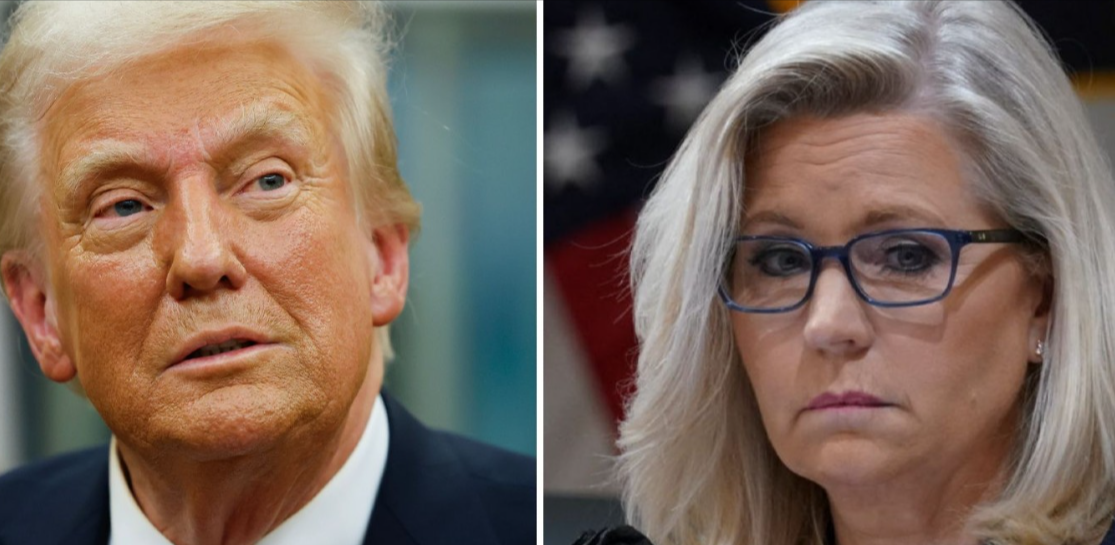Cheney Could Be Forced To Testify Despite Pre-Emptive Biden Pardon

Former Wyoming Republican Rep. Liz Cheney, who distanced herself from then-President Donald Trump during his tenure and later campaigned alongside then-Vice President Kamala Harris, may now be compelled to testify under oath before a GOP-led House committee. This comes despite receiving a preemptive pardon from former President Joe Biden.
Following their narrow majority win last month, House Republicans, under the leadership of Speaker Mike Johnson (R-La.), established a committee to scrutinize the operations of the January 6 Committee. Cheney, who served as co-chair of that panel, was part of a group primarily selected by then-Speaker Nancy Pelosi of California, which was heavily comprised of Democrats.
Over the past few years, reports have surfaced indicating that the January 6 Committee was more politically driven than investigative, appearing to focus on placing all blame on Trump while allegedly withholding contradictory evidence.
During the committee's proceedings, Cheney was vocal in her criticism of Trump. In a June 2022 speech, she warned fellow Republicans, stating, "There will come a day when Donald Trump is gone, but your dishonor will remain."
In December 2024, the House Administration’s Subcommittee on Oversight, chaired by Rep. Barry Loudermilk (R-GA), released a report recommending an investigation into Cheney for potential witness tampering. The report accused her of unethical communication with former White House aide Cassidy Hutchinson during the committee’s investigation.
On January 20, just before leaving office, Biden issued preemptive pardons to members of the January 6 Committee, including Cheney, to protect them from potential political retaliation by the incoming administration. He clarified that these pardons should not be seen as an admission of wrongdoing but as recognition of their service.
However, legal analysts have pointed out a significant consequence of presidential pardons: they eliminate the recipient’s ability to invoke the Fifth Amendment to avoid self-incrimination for the offenses covered by the pardon.
The Fifth Amendment protects individuals from being compelled to testify against themselves in criminal cases. However, a longstanding precedent from the 1896 Supreme Court case Brown v. Walker establishes that once a pardon is granted, the recipient can no longer claim this privilege, as the pardon removes the risk of prosecution tied to the offense.
The Cowboy State Daily first reported on Cheney’s potential legal predicament and how the presidential pardon could affect her ability to avoid testifying. If the new subcommittee subpoenas Cheney, she may be legally obligated to disclose details about her involvement in the January 6 investigation.
Journalist Matt Taibbi, speaking with former Fox News host Tucker Carlson on his podcast last month, suggested that Biden’s preemptive pardons for Cheney, Dr. Anthony Fauci, and others could backfire in unexpected ways.
"The thing is, about these pardons, they’re a mistake. If you want to know what’s happening, they just made it a lot easier for us to find out," Taibbi remarked, speculating that Biden pardoned individuals potentially linked to wrongdoing.
Taibbi elaborated that according to legal experts he consulted, the pardons prevent recipients from pleading the Fifth or evading perjury consequences if they testify falsely under oath.
"Now, once the pardon’s delivered, the person can’t plead the Fifth. If they are brought before a grand jury, they can’t take the Fifth anymore, or if they’re brought before a congressional committee, they can’t evoke their right against self-incrimination, so they have to say something," he explained.
"And this is what’s so interesting because I’ve been talking to criminal defense attorneys, people who are former Senate investigators, some current Senate investigators, and they all kind of said the same thing," he continued. "It’s so illogical to give somebody a pardon if you’re trying to cover up things that the only reason you would really do it is if there are very serious crimes involved, right?"